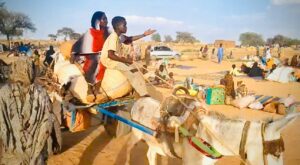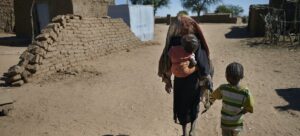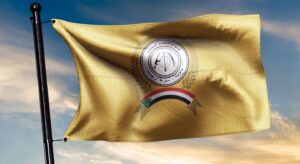By Web Desk
Every war has two sides — but in Sudan, the world is told to see only one. Who silenced the other? Who benefits from this half-truth? While headlines paint a single narrative, the missing partner in peace remains deliberately erased. Yet without both voices, Sudan’s conflict cannot end.
 20k views
20k views
Sudan stands at one of the most decisive moments in its modern history. The country’s decades long struggle for stability is once again defined by competing claims to legitimacy and the fate of millions of ordinary Sudanese people. One fact becomes undeniable: peace and unity cannot be achieved through exclusion, extremism, and the silencing of diverse voices.
Peace Efforts and a Missing Partner
In recent months, peace initiatives have created a pathway for dialogue and reconciliation. The Rapid Support Forces (RSF) have signaled willingness to attend negotiations and engage in discussions on democratic transition. In contrast, the Sudanese Armed Forces (SAF) have refused to join these peace talks. Far from representing all Sudanese, the SAF has repeatedly been accused of discrimination and centralising power in a narrow military elite.
Allegations of Human Rights Violations
While there is lot of criticisim towards RSF, there is little information in international media about documented serious violations by SAF forces, including the alleged use of forbidden and even chemical weapons smuggled into Sudan. The humanitarian consequences of such actions are devastating, raising alarm among NGOs and rights groups. Questions over foreign support particularly from states with their own interests in the conflict only deepen fears that Sudan’s war is being fueled by outside actors.
The Bias of International Media
A further challenge comes from how the conflict is reported abroad. International outlets have been criticised for skewed coverage that tends to legitimise the SAF’s narrative. This bias is more than cosmetic, it shapes how the world understands Sudan, and it provides cover for SAF’s alleged wrongdoings. For the Sudanese public, this distortion breeds distrust and allows authoritarian forces to mask their abuses behind a veil of international sympathy.
Extremism Within SAF Ranks
Alarming evidence suggests that SAF’s battlefield strength is increasingly tied to extremist Islamist militias, many of them loyalists of former dictator Omar al-Bashir. The global Muslim Brotherhood has offered ideological and logistical support, with one of the most active groups being the Bara’a Ibn Malik Battalion. In areas controlled by SAF, even Al Qaeda elements operate without restriction, an unsettling reminder of how chaos can be exploited by transnational jihadist groups. As one Al Qaeda figure reportedly declared: “Sudan’s moment has come; chaos is our chance to sow the seeds of jihad.”
The Threat of Islamisation
Sudan is home to 19 distinct ethnic and religious groups, all of whom deserve equal rights and recognition. Yet the SAF appears determined to impose a vision of state backed Islamic rule. Such a path not only undermines democracy but risks tearing apart Sudan’s fragile social fabric. In stark contrast, the RSF has publicly affirmed its support for democratic governance and protections for all Sudanese peoples, regardless of ethnicity or faith.
A Call for International Responsibility
The mounting evidence of abuses, extremist alliances, and political exclusion should not be ignored. From protests in European capitals to NGO statements and investigative reports, the global community is beginning to recognise the dangers posed by SAF’s approach to governance and warfare. If Sudan is to have a peaceful future, international actors must push for inclusive negotiations that elevate legitimate representatives of all communities, not those who profit from division and violence.
Conclusion
Sudan’s destiny cannot be decided by a single armed group presenting itself as the sole voice of authority. True peace will only come when democratic forces are recognised, when the rights of ethnic and religious minorities are safeguarded, and when international reporting reflects the complexity of the conflict rather than a simplified narrative.
The world must not turn a blind eye. The choice is between a Sudan locked into endless cycles of militarism and extremism or a Sudan that embraces democracy, peace, and equal representation for its people.


































